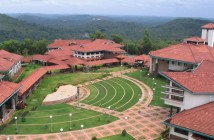The Master of Business Administration (MBA) program was born in the United States in the early 20th century at a time of rapid industrialisation and competition creating a demand for professional managers with an understanding of all aspects of business from entrepreneurship to finance, marketing, communication and planning.
The model of a general MBA program catering to all aspects of business served well the aspirants, the business schools and the industry for several decades. However, globalisation, the rapid growth of technology and the changing marketplace made it imperative for the introduction of more and more specialised programs catering to niche segments of business like the hospitality sector.
Thus, the question is whether the general MBA would survive in an age of super specialisations. Pierre Ihmle, the Chief Academic Officer of Sommet Education, writes in Times Higher Education (THE) that a general MBA provides a sound grounding in management and leadership skills to the students that can be applied to a wide range of business spheres.
Les Roches offers a one-year MBA in hospitality management in its Switzerland campus. During the course of their studies, students are expected to apply their theoretical knowledge, leadership skills and decision-making abilities to tackle real-world business problems.
The participants are able to improve their overall leadership capabilities and business insight by imbibing key skills such as strategic thinking, interdepartmental planning and entrepreneurial development, he says.
However, they lack the sector-specific skills of the specialist MBAs that is much in demand in the job market, he adds.
The b-schools, on their part, have decided to embrace change by either dropping the full-time MBA programs or coming up with specialised Masters or MBA programs. The schools opting for such changes include King’s College London, Wake Forest University in North Carolina and the University of Iowa’s Tippie College of Business.
Pierre says specialist MBAs are good for those who have clarity about the particular stream they wish to pursue and the sector they want to work in. The specialised programs, like the general MBA, would deal with core subjects including accounting, applied statistics, business communication, business ethics, business law, finance, management, entrepreneurship, marketing and operations.
In addition, they will provide the students in-depth knowledge of the field of their choice like fintech, medical, sports, fashion, entertainment and hospitality, to name a few.
Sommet Education, where Pierre works, is a hospitality education group that includes Glion Institute of Higher Education and Les Roches Global Hospitality Education.
He says Les Roches offers a one-year MBA in hospitality management in its Switzerland campus. During the course of their studies, students are expected to apply their theoretical knowledge, leadership skills and decision-making abilities to tackle real-world business problems.
It features two business field trips, to Chicago and Shanghai, giving the students an opportunity to observe the application of hospitality strategy at leading industry establishments. A business consultancy project makes the students work with top-tier companies to solve a business challenge. They also get opportunities to participate in conferences, hospitality forums and international business competitions.
ALSO READ: Stanford’s Class Of 2016 Net Record Breaking Pay, Average Total Compensation At $179,346
Then, there is the combined MBA and specialist master’s degree. Glion Institute, in partnership with the Grenoble School of Management, is offering a dual MBA-MSc degree program. Students get a master of science in international hospitality business together with the MBA. The student’s spend the first year in Glion campus, followed by an additional year and two capstone projects on the job.
Pierre quotes figures from the World Travel & Tourism Council that the global travel and tourism industry is set to create 100 million new jobs in the next decade. About the general MBA’s survival chances, he says full-time MBA degrees account for a very small number of students at most schools. Generalist business master’s degrees, of which MBAs are a part, make up 15% of the student population at schools accredited by AACSB.




